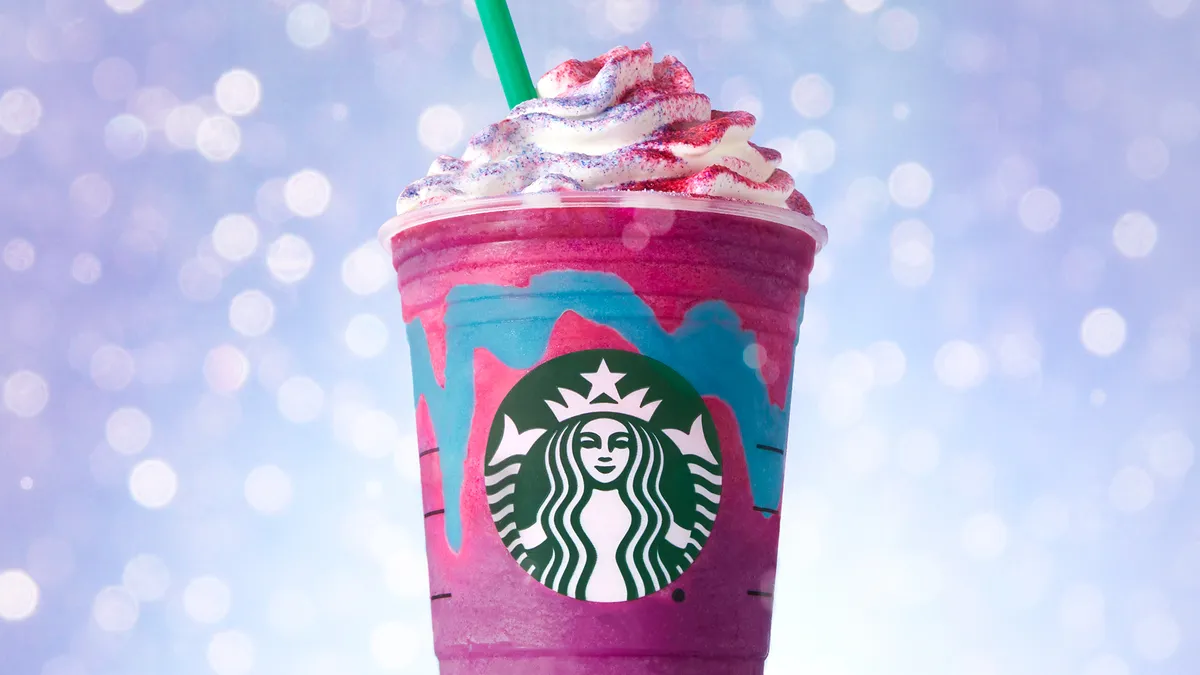Dive Brief:
- Starbucks' Unicorn Frappuccino — a funkily-colored drink that was only sold for five days but drove "significant traffic, incrementality, awareness and brand affinity" — is spurring more digital and social initiative at the brand, executive chairman Howard Schultz suggested on a recent earnings call and as reported by Nation's Restaurant News.
- Part of the Unicorn's success was the limited availability of the product and the fact that it was tailor-made to generate Instagram and Facebook shares from Starbucks fans. "Just stay tuned, because we have a lot more coming," Schultz said, both in terms of product innovation and also how the brand is going to market those products.
- These reassurances come as investors weren't pleased with Starbucks' overall earnings report, which included a 2% drop in transactions, but Schultz said product, mobile and digital development will all boost sales going forward this year.
Dive Insight:
Mobile is becoming an increasingly important piece of Starbucks' business, and the viral craze of the Unicorn Frappucino might mark a pivotal moment in the evolution of the brand's marketing strategy with the channel. While reviews of the actual flavor profile for the Unicorn were, let's say, mixed at best, the quirkiness and visual pop of the product, designed to be shared on social, clearly accomplished its goals and then some.
Starbucks isn't alone in eyeing social as an area, not just to build buzz via off-kilter promotions, but also to develop and curate unique menu items, often with limited availability. Taco Bell is similarly leveraging Instagram and micro-influencers on the platform to promote products like the Naked Chicken Chalupa in a way that appeals to younger customers.
Even though Starbucks' success is based on getting people to buy coffee and food at its physical locations, mobile ordering and payment make up 8% of its transactions, per Nation's Restaurant News, which noted Starbucks Rewards specifically accounted for 36% of U.S. sales.
Accordingly, Starbucks is investing in its digital and rewards programs. Earlier this year, the brand expanded voice ordering on its iOS app through an assistant called Starbucks My Barista, and it also released a Starbucks Reorder skill for Amazon's Alexa.
Much of this comes as part of a five-year innovation strategy, first outlined late last year, to foster global growth and add 12,000 stores worldwide by 2021.













